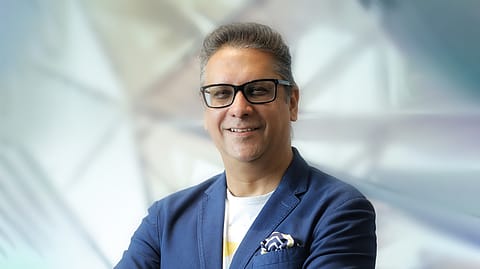Hybrids should get incentives not only on road tax but GST too, says BMW India’s Vikram Pawah
Hybrid technology is a stepping stone, not the final solution, says BMW Group India president and CEO Vikram Pawah.

Cleaner cars, including plug-in and strong hybrid vehicles, should get incentives not only on road tax but also on Goods and Services Tax (GST), according to BMW Group India president and CEO Vikram Pawah.
“If the government wants to really promote the final aim of CO2 reduction, then there needs to be a gradient that the cleanest technologies should be the least taxed so that people migrate towards cleaner vehicles,” Pawah tells Fortune India in an interview.
Taxation should be based on environmental friendliness, not on size and capacity, says Pawah. In India, EVs are taxed at 5%, hybrids at 43% and conventional internal-combustion engine (ICE) vehicles attract GST in the range of 45% to 50%, depending on size and engine capacity. Other than GST, some states, including Uttar Pradesh, offer a road tax waiver on hybrid car purchases.
Pawah, however, acknowledged that the hybrid technology is just a stepping stone and not the final solution. “For India’s final aim of carbon footprint reduction, I think electric is the right way,” he added.
BMW is India’s top-selling luxury EV maker, with electric cars accounting for 18% share in its total sales. The German carmaker has led the luxury EV sales in India over the last three years. In the first half of 2025, 1,322 BMW and MINI EVs were sold, recording a 234% year-on-year growth. The BMW iX1 Long Wheelbase, which is locally assembled, was the highest-selling electric car during this period, followed by the flagship BMW i7 in second spot. “We have a 50% share in the luxury EV space,” claims Pawah.
In India, BMW offers the widest range of luxury electric cars, including the BMW i7, BMW iX, BMW i5, BMW i4, BMW iX1 Long Wheelbase, and MINI Countryman E.
Cumulatively, BMW Group India has delivered 5,000 electric cars so far, becoming the first luxury car manufacturer to achieve this milestone.
Recommended Stories
BMW also sells the BMW XM plug-in hybrid vehicle. In the first six months of 2025, BMW sold 47 plug-in hybrid cars, according to data sourced from the government’s VAHAN website.
BMW follows a technology-agnostic approach. “We produce petrol, diesel, plug-in hybrid and full electric,” says Pawah. The company’s diesel share has shrunk from 60% in 2019 to 17% this year. “Diesel customers are shifting to EVs, which give the same benefit in terms of running cost,” says Pawah. Petrol-powered vehicles still account for 65% of its total sales.
On the localisation plans of EVs other than iX1, Pawah says, “We already make 10 products in India. Production follows the volumes. As and when we see volumes go up, we localise the products.”
Unlike the mass market segment where sedan sales are shrinking, BMW has witnessed more customers opting for the i7 than its full-size SUV, the iX. “We have seen a little bit of shift happening towards the i7 because it is very close to that category,” says Pawah. However, SUVs account for 57% of BMW’s sales while the rest 43% comes from sedans.
(INR CR)
BMW, which currently has 80 touchpoints for sales and service, plans to take this count to 100 within two years.
When asked if BMW is considering the government’s Scheme to Promote Manufacturing of Electric Passenger Cars in India (SPMEPCI), Pawah says there should be a level-playing field for a new entrant and companies that already exist in India. “We are producing EVs without the policy. We put up a factory 18 years ago when the PLI for auto was non-existent. Incentives should be equal for all,” he says.
The EV manufacturing scheme slashes import duty for EVs with cost, insurance and freight value of $35,000 or more to 15% from 100% if an automaker commits to invest at least ₹4,150 crore or $500 million to set up a new EV manufacturing facility in India.
“The major investment by an automaker happens on the plant, building capacity. The main thing is the factory. That’s where the investment goes. We already have a factory. There is no way we can set up another factory unless we exhaust the capacity of that factory,” Pawah adds.
On Friday, BMW announced a new EV charging corridor covering national highways and major cities like Delhi, Jaipur, Ahmedabad, Mumbai, Pune, Hubbali, Bengaluru, Coimbatore and Madurai. “The station capacity will range from 120kW to up to 720kW. The locations have been chosen mindfully where customers can make a quick stop for a coffee or hot meal at nearby public spaces while their vehicle is charged,” it said. The charging stations will be operated in partnership with leading operators like Statiq and Zeon.